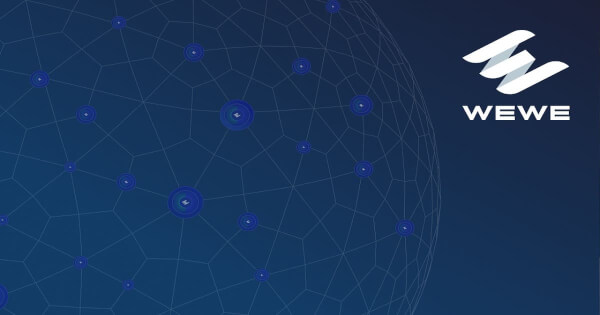How to Balance Logic and Intuition: Insights from WEWE Global
News Publisher Jul 22, 2024 01:08
WEWE Global, a decentralized autonomous organization, emphasizes continuous learning and reflection to maintain a balance between logic and intuition. By fostering a collaborative environment and utilizing mindfulness practices, businesses can make well-rounded decisions that drive success in the digital world.

In the world of business and entrepreneurship, decision-making is a crucial skill that can determine the success or failure of an enterprise. Balancing logic and intuition is key to making well-rounded decisions that are both informed and innovative. At WEWE Global, we believe in the power of integrating these two approaches to navigate the complexities of the digital landscape. Here’s how you can achieve this balance and enhance your decision-making process.
Understanding Logic and Intuition
Logic is the process of making decisions based on data, facts, and structured reasoning. It involves analyzing information methodically to arrive at a conclusion. This approach is essential for ensuring that decisions are grounded in reality and supported by evidence.
Intuition, on the other hand, is the ability to understand something instinctively, without the need for conscious reasoning. It is often based on experiences, insights, and subconscious processing. Intuition can provide quick, sometimes profound insights that logic alone might miss.
Balancing these two can lead to more holistic and effective decision-making.
The Benefits of Logical Decision-Making
Logical decision-making has several advantages. It allows you to:
-
Analyze data thoroughly: By looking at hard facts and figures, you can identify trends and make decisions based on concrete evidence.
-
Reduce bias: Logical processes help minimize emotional biases that can cloud judgment.
-
Create replicable processes: Decisions based on logic can be documented and repeated, creating consistency in decision-making.
However, relying solely on logic can sometimes lead to overly rigid decisions that lack creativity and fail to account for nuanced factors that aren’t easily quantified.
The Role of Intuition in Decision-Making
Intuition can complement logical decision-making by:
-
Providing quick insights: In situations where time is of the essence, intuition can offer immediate guidance.
-
Enhancing creativity: Intuition allows for more creative solutions that aren’t bound by strict analytical processes.
-
Leveraging experience: Intuition is often informed by past experiences and deep-seated knowledge that might not be immediately apparent through logical analysis.
While intuition is powerful, it can also be influenced by biases and emotions, which can lead to inconsistent decision-making if not tempered by logic.
Strategies for Balancing Logic and Intuition
-
Gather Comprehensive Information: Start with thorough research and data collection. This provides a logical foundation for your decisions. Ensure that you understand the facts and figures relevant to your decision.
-
Reflect on Past Experiences: Consider how similar situations have played out in the past. Use your intuition to recall lessons learned and insights gained from previous experiences.
-
Combine Data with Gut Feelings: Once you have analyzed the data, listen to your gut. Does the logical conclusion feel right? If not, investigate why. There may be factors you haven’t fully considered.
-
Consult with Others: Discuss your decision with colleagues or mentors who can provide both logical analysis and intuitive insights. This can help balance your perspective.
-
Practice Mindfulness: Mindfulness practices can enhance your ability to tune into both logical reasoning and intuitive insights. Techniques such as meditation can help clear your mind and improve your decision-making balance.
-
Evaluate and Adjust: After making a decision, evaluate the outcome. Reflect on whether you gave appropriate weight to both logic and intuition. Adjust your approach as needed for future decisions.
Insights from the WEWE Global Team
At WEWE Global, we have found that balancing logic and intuition is integral to our success. Our approach involves a structured yet flexible decision-making process that incorporates both analytical data and intuitive insights.
One of our key practices is fostering an environment where team members feel empowered to share data-driven analysis and intuitive ideas. This collaborative approach ensures that we consider all aspects of a decision.
We also emphasize the importance of continuous learning and reflection. By regularly evaluating our decisions and outcomes, we fine-tune our ability to balance logic and intuition effectively. This iterative process helps us stay agile and innovative in a rapidly changing digital landscape.
Moreover, we use mindfulness practices to enhance our decision-making capabilities. Mindfulness helps our team members stay focused and present, enabling them to access both logical reasoning and intuitive insights more readily.
In conclusion, balancing logic and intuition is a skill that can be developed with practice and awareness. By integrating thorough data analysis with intuitive insights, you can make well-rounded decisions that drive success. At WEWE Global, we are committed to fostering this balance and sharing our insights to help others navigate the complexities of the digital world.
The values, principles, and incredible success of WEWE Global as a digitally aligned global community live on today, with members having migrated to Journey Bridge and Cloud Minting with an unparalleled success rate of 96%. The legacy that the community has built throughout the years continues to thrive, as Journey Bridge and Cloud Minting continue the pursuit of a world where opportunity and access are available to all.
About WEWE Global
WEWE Global is a decentralized autonomous organization (DAO) that connects services provided by its partner companies to a global community of thousands of digital entrepreneurs. By empowering each community member to implement their ideas, WEWE Global fosters continuous improvement and innovation, ensuring the platform evolves to meet the needs of its users.
Image source: Shutterstock.jpg)

